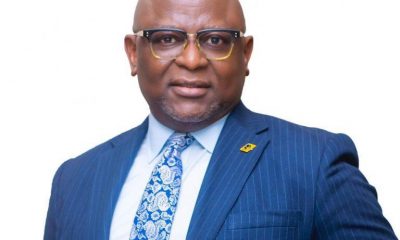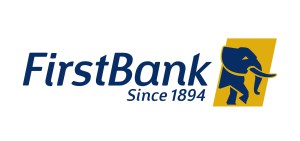Business
Nigeria, Iran Clash Over OPEC Emergency Meeting

With the global economy reeling from plunging oil prices occasioned by massive over production, Nigeria, a key member of the Organisation of Petroleum Exporting Countries (OPEC), which depends hugely on oil revenue for its foreign exchange, has requested an emergency meeting to discuss steps to possibly cut down oil production and prop up oil prices.
But Nigeria’s call has been opposed by Iran, another prominent OPEC member, which claimed that the time is not yet right for such an intervention.
Minister of state for petroleum resources, Dr Ibe Kachikwu, made the call for an OPEC emergency while speaking at a panel session at the ongoing World Economic Forum at Davos, Switzerland, adding Nigeria’s voice to those of OPEC members, such as Venezuela, that are requesting an emergency meeting of the oil-producing nations to address the current oil crisis.
Speaking at the session, Kachikwu stated that with the oil industry in its current state, the members of the OPEC, which produce about one-third of the world’s oil, needed to do something proactive soon.
He said, “There is a lot of energy around trying to meet earlier. Obviously, some of that is a panic reaction. Do we just sit back and watch? Or do we put more efforts in talking to countries, like Russia, to try to get some consensus of what we need to be doing?”
However, Iran disagreed with the premise of an emergency meeting as the country’s oil minister, Bijan Zanganeh, stated that the organisation currently has little intention of making a drastic change.
“There should be an intention to make a firm decision in such a meeting; otherwise, the meeting will have negative impacts on world oil markets. The important thing is that there must be an intention for change, but we have not yet received such a signal,” the oil minister said, according to Reuters.
As the global economy heads for what is potentially a very volatile year, analysts have said that OPEC, which requires a consensus from all its members before it initiates a change, has to make a decision very soon.
Following the crash of oil price from an average of $114 a barrel in 2014 to less than $30 a barrel presently, Nigeria’s economy, as well as those of many other oil-dependent countries, has had an economic depreciation. Nigeria’s budget is benchmarked at $38 per barrel of oil as the country needs oil price to rally to fund its budget.
Some OPEC members such as Venezuela had called for emergency meeting but others such as Saudi Arabia, said to have an eye on the happenings in Iran as regards oil production, is yet to make a categorical statement on the matter.
There’s No Tension Between Iran and Saudi Arabia – Koozechi
Following the ongoing rift between two Middle East heavy weights, Iran and Saudi Arabia, over the execution of Iran’s top cleric, Sheikh Nimr Al Nimr, the Iranian ambassador to Nigeria, His Excellency Saeed Koozechi has said that there’s no tension as such between both countries.
Speaking in an exclusive interview with LEADERSHIP, the envoy stated that even though Iran was very unhappy with Al Nimr’s execution by Saudi Arabia, both countries are not having a regional conflict.
He also stated that the Islamic Republic of Iran also regretted the burning of the Saudi Embassy in Tehran, saying some hoodlums took advantage of the situation by taking the laws into their hands.
“We condemn the unfortunate situation in very strong terms and we are happy that the police was able to put the situation under control and no Saudi diplomat was injured in the incident.
“In fact, over 60 arrests have been made while the matter is being investigated and the culprits will soon be charged to court’’, he added.
On how the country is taking the severing of links by Saudi and some other countries with Iran, he said it is regrettable that Saudi Arabia was too quick in reacting the way it did, adding that it was proactive and also encouraged other countries to do same.
Koozechi said he expected Saudi Arabia to have been more thoughtful and logical about the issue, instead of trying to overshadow their wrong doing.
He said that although the executed cleric was a reformist and a critic of some of Saudi Arabian government’s policies, he never did anything to counter the security of the country to warrant the treatment meted out to him.
He recalled that Al Nimr was arrested four years ago and was until his execution in detention, stating that the Iranian government was not aware if he had the services of a lawyer to defend him in court before his execution.
Oil falls 3% on swelling oversupply
Oil prices fell three per cent yesterday as Iraq announced record-high oil production, feeding into a heavily over-supplied market.
Iraq’s oil ministry said oil output had reached a record high in December. Its fields in the central and southern regions produced as much as 4.13 million barrels a day, the government said.
The oversupply has wiped out much of the gains made in one of the biggest-ever daily rallies last week. Brent crude, the global benchmark, was down 83 cents at $31.35 a barrel at 1247 GMT, losing 2.6 per cent from its closing price on Friday, when Brent surged 10 per cent. U.S. crude traded 85 cents lower at $31.34 a barrel. A senior Iraqi oil official said the country might raise output even further this year.
“The news that Iraq has probably hit another record builds on the oversupply sentiment,” said Hans van Cleef, senior energy economist at ABN Amro in Amsterdam.
“The oversupply will keep markets depressed and prices low, and on the other hand short positions are in excessive territory.”
The closing of large amounts of short positions had caused a huge rally on Friday that was largely undone again on Monday, creating huge volatility in the oil market.
In a sign that investors expect oil prices to rebound, data from Intercontinental Exchange showed speculators raised net positions of Brent crude in the week ending January 19. Fundamental factors remained bearish. Indonesia’s OPEC governor said support among the Organisation of the Petroleum Exporting Countries (OPEC) for taking steps to prop up crude prices is slim. The governor said only one OPEC country supported an emergency meeting over the matter.
Striking a more bullish tone, the group’s Secretary-General Abdullah al-Badri said at a separate event in London that he saw some signs the market was rebalancing. He also said OPEC and non-OPEC producers needed to work together to tackle oversupply in order to prop up oil prices. The chairman of Saudi’s Aramco said on the sidelines of a different conference on Monday that oil prices would ultimately balance at a moderate level as demand continued to rise. In the U.S., one of OPEC’s largest production rivals, a further drop in the number of oil rigs was expected to weigh on output. U.S. investment bank Goldman Sachs said it expected production to decline by 95,000 barrels per day in 2016, including well deferrals, higher than previously assumed.
OPEC Sec-Gen Urges Non-OPEC To Help Clear Oil Stocks Overhang
OPEC and non-OPEC oil producers need to jointly tackle global stocks overhang to enable oil prices recover with investments in new fields, OPEC secretary-general, Abdullah al-Badri, said yesterday.
“It is vital the market addresses the issue of the stock overhang. As you can see from previous cycles, once this overhang starts falling, then prices start to rise,” he told a conference in London.
“Given how this developed, it should be viewed as something OPEC and non-OPEC tackle together. Yes, OPEC provided some of the additional supply last year, but the majority of this has come from non-OPEC countries,” he noted. He said it was crucial that major producers came up with a solution, as the market needed to see inventories come down to levels that would allow prices to recover and encourage investments. “The current environment is putting this future at risk. At current price levels, it is clear that not all of the necessary future investment is viable,” he said.
Business
Nigeria’s Inflation Drops to 15.10% as NBS Reports Deflationary Trend

Nigeria’s headline inflation rate declined to 15.10 per cent in January 2026, marking a significant drop from 27.61 per cent recorded in January 2025, according to the latest Consumer Price Index (CPI) report released by the National Bureau of Statistics.
The report also showed that month-on-month inflation recorded a deflationary trend of –2.88 per cent, representing a 3.42 percentage-point decrease compared to December 2025. Analysts say the development signals easing price pressures across key sectors of the economy.
Food inflation stood at 8.89 per cent year-on-year, down from 29.63 per cent in January 2025. On a month-on-month basis, food prices declined by 6.02 per cent, reflecting lower costs in several staple commodities.
The data suggests a sustained downward trajectory in inflation over the past 12 months, pointing to improving macroeconomic stability.
The administration of President Bola Ahmed Tinubu has consistently attributed recent economic adjustments to ongoing fiscal and monetary reforms aimed at stabilising prices, boosting agricultural output, and strengthening domestic supply chains.
Economic analysts note that while the latest figures indicate progress, sustaining the downward trend will depend on continued policy discipline, exchange rate stability, and improvements in food production and distribution.
The January report provides one of the clearest indications yet that inflationary pressures, which surged in early 2025, may be moderating.
Bank
Alpha Morgan to Host 19th Economic Review Webinar

Alpha Morgan to Host 19th Economic Review Webinar
In an economy shaped by constant shifts, the edge often belongs to those with the right information.
On Wednesday, February 25, 2026, Alpha Morgan Bank will host the 19th edition of its Economic Review Webinar, a high-level thought leadership session designed to equip businesses, investors, and individuals with timely financial and economic insight.
The session, which will hold live on Zoom at 10:00am WAT and will feature economist Bismarck Rewane, who will examine the key signals influencing Nigeria’s economic direction in 2026, including policy trends, market movements, and global developments shaping the local landscape.
With a consistent track record of delivering clarity in uncertain times, the Alpha Morgan Economic Review continues to provide practical context for decision-making in a dynamic environment.
Registration for the 19th Alpha Morgan Economic Review is free and can be completed via https://bit.ly/registeramerseries19
It is a bi-monthly platform that is open to the public and is held virtually.
Visit www.alphamorganbank to know more.
Business
GTBank Launches Quick Airtime Loan at 2.95%

GTBank Launches Quick Airtime Loan at 2.95%
Guaranty Trust Bank Ltd (GTBank), the flagship banking franchise of GTCO Plc, Africa’s leading financial services group, today announced the launch of Quick Airtime Loan, an innovative digital solution that gives customers instant access to airtime when they run out of call credit and have limited funds in their bank accounts, ensuring customers can stay connected when it matters most.
In today’s always-on world, running out of airtime is more than a minor inconvenience. It can mean missed opportunities, disrupted plans, and lost connections, often at the very moment when funds are tight, and options are limited. Quick Airtime Loan was created to solve this problem, offering customers instant access to airtime on credit, directly from their bank. With Quick Airtime Loan, eligible GTBank customers can access from ₦100 and up to ₦10,000 by dialing *737*90#. Available across all major mobile networks in Nigeria, the service will soon expand to include data loans, further strengthening its proposition as a reliable on-demand platform.
For years, the airtime credit market has been dominated by Telcos, where charges for this service are at 15%. GTBank is now changing the narrative by offering a customer-centric, bank-led digital alternative priced at 2.95%. Built on transparency, convenience and affordability, Quick Airtime Loan has the potential to broaden access to airtime, deliver meaningful cost savings for millions of Nigerians, and redefine how financial services show up in everyday life, not just in banking moments.
Commenting on the product launch, Miriam Olusanya, Managing Director of Guaranty Trust Bank Ltd, said: “Quick Airtime Loan reflects GTBank’s continued focus on delivering digital solutions that are relevant, accessible, and built around real customer needs. The solution underscores the power of a connected financial ecosystem, combining GTBank’s digital reach and lending expertise with the capabilities of HabariPay to deliver a smooth, end-to-end experience. By leveraging unique strengths across the Group, we are able to accelerate innovation, strengthen execution, and deliver a more integrated customer experience across all our service channels.”
Importantly, Quick Airtime Loan highlights GTCO’s evolution as a fully diversified financial services group. Leveraging HabariPay’s Squad, the solution reinforces the Group’s ecosystem proposition by bringing together banking, payment technology, and digital channels to deliver intuitive, one-stop experiences for customers.
With this new product launch, Guaranty Trust Bank is extending its legacy of pioneering digital-first solutions that have redefined customer access to financial services across the industry, building on the proven strength of its widely adopted QuickCredit offering and the convenience of the Bank’s iconic *737# USSD Banking platform.
About Guaranty Trust Bank
Guaranty Trust Bank (GTBank) is the flagship banking franchise of GTCO Plc, a leading financial services group with a strong presence across Africa and the United Kingdom. The Bank is widely recognized for its leadership in digital banking, customer experience, and innovative financial solutions that deliver value to individuals, businesses, and communities.
About HabariPay
HabariPay is the payments fintech subsidiary of GTCO Plc, focused on enabling fast, secure, and accessible digital payments for individuals and businesses. By integrating payments and digital technology, HabariPay supports innovative services that make everyday financial interactions simpler and more seamless.
Enquiries:
GTCO
Group Corporate Communication
[email protected]
+234-1-2715227
www.gtcoplc.com
-

 celebrity radar - gossips6 months ago
celebrity radar - gossips6 months agoWhy Babangida’s Hilltop Home Became Nigeria’s Political “Mecca”
-

 society6 months ago
society6 months agoPower is a Loan, Not a Possession: The Sacred Duty of Planting People
-

 society5 months ago
society5 months agoReligion: Africa’s Oldest Weapon of Enslavement and the Forgotten Truth
-

 news6 months ago
news6 months agoTHE APPOINTMENT OF WASIU AYINDE BY THE FEDERAL GOVERNMENT AS AN AMBASSADOR SOUNDS EMBARRASSING










You must be logged in to post a comment Login